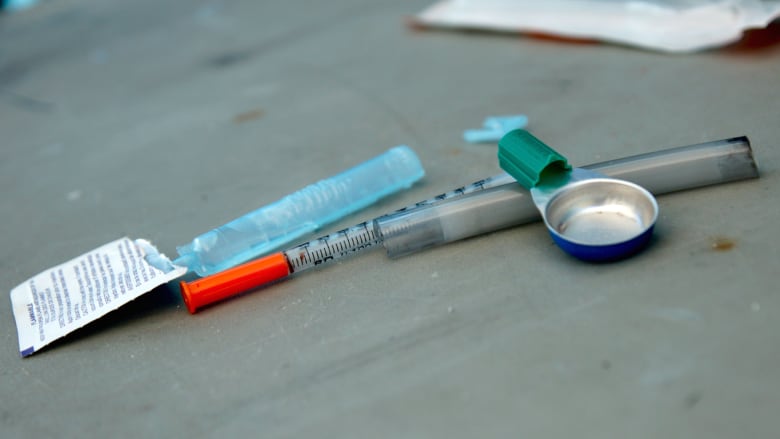'We can't get complacent about this': Overdose stats 'discouraging,' chief health officer says
128 people died from illicit drug overdoses in September, latest report from B.C. Coroners Service finds

A new report from the B.C. Coroners Service has found that 128 people in the province died from illicit drug overdoses in September, an increase of 38 per cent from last year.
Fentanyl has been detected in 84 per cent of such deaths in the province so far this year, according to the report. The majority of people dying are men.
Patricia Daly, chief medical health officer for Vancouver Coastal Health, spoke with On The Coast host Gloria Macarenko about the findings.
What goes through your head when you hear the numbers?
It is discouraging.
It's been two years where we've seen at least 100 deaths per month, apart from two months last year. And we can't get complacent about this. These are preventable deaths.
We know things would have been much worse if we hadn't implemented the strategies that are in place in B.C. Based on work that's been done by the B.C. Centre for Disease Control, they estimate we would have had 2.5 times more deaths than we've seen in the last three years.

The drug supply is poisoned with fentanyl. Should the federal government be pushing for decriminalization or legalization of all illicit drugs so that it can control the drugs being consumed?
Decriminalization would be a good first step because it would address the stigma associated with drug use. But decriminalization alone will not change the toxic drug supply.
The only way to do that is to have a legal regulatory approach to all illegal substances.
If this was something different than addiction and illicit drugs — if this was another disease altogether and it was killing more than 100 people per month — how would the response to it be different?
If we had people getting sick and dying because there was a toxic substance in the food supply, we would take immediate action. We would take that food off the shelf and replace it with something that wasn't causing illness.
The problem is the fact that this is occurring because of changes to the illegal drug supply. And it's what's made it so challenging to take the kind of steps needed to make a difference.
What role does stigma continue to play in the approach to this crisis?
It plays a huge role.
We know that 90 per cent of people who are dying are dying indoors. Most of those people are consuming alone. That may be associated with the stigma associated with drug use. They don't want to admit to their family, to their friends, that they have a problem. They may not want to come to an overdose prevention site where they can consume their drugs under observation.
Part of it is having a better understanding of opioid use disorder as a medical condition. We can't blame them for this. We can't blame them when they relapse. It's a part of the treatment.
We need to get past that.
What can you tell us about the impact this is having on the frontline workers?
The crisis was declared three years ago, so there has been burn out.
We shouldn't forget the peer workforce who have been instrumental in the response. They have been working in many of the overdose prevention sites, so they see the impact of the crisis every day and, in addition, they're losing their friends or relatives to overdose deaths.
We need to recognize, as a community, that this is all our problem.
This interview has been edited for length and clarity. Listen to the full interview below: